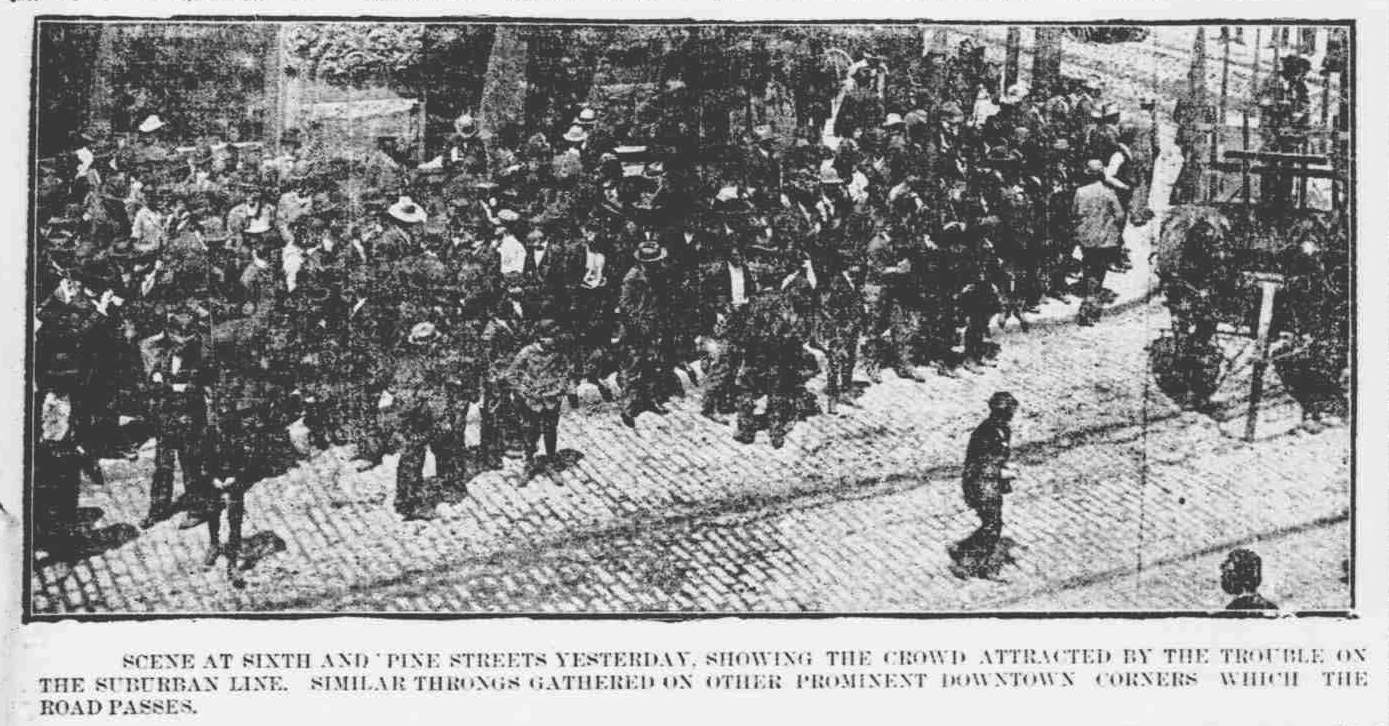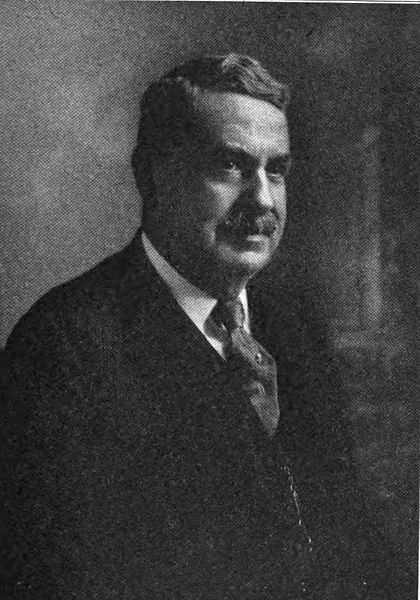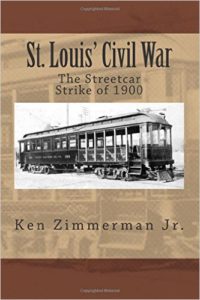St. Louis Streetcar Strike Explodes
On Saturday, May 5, 1900 at 11:30 p.m., the explosion of the Suburban Line at the Wabash and Sarah Street railroad crossing marked the beginning of the St. Louis Street Car Strike of 1900. Before the strike was over in September 1900, the streets of St. Louis would be a battle ground between rich and poor with the St. Louis Police Department in the middle of the fray. The strike would divide the overwhelmed police department as well.

Union Demonstration at Sixth and Pine Streets from the May 1, 1900 edition of the St. Louis Republic
In 1899, St. Louis’ multiple street car lines consolidated leaving only the St. Louis and Suburban Rail Company and the St. Louis Transit Company. The street car employees felt they were over worked and underappreciated, so they tried to organize a union to represent them. Union agitation was increasing in St. Louis at the time. On April 30, 1900, a few days before the railway explosion, union and non-union painters had a confrontation at S. Broadway and Chouteau Avenues.
The boss of the non-union men shot at one of the union men but missed and struck a child. Fortunately, the girl, Annie Lahr, suffered only a flesh wound. St. Louis Police arrested one of the union men but did not take Charles Newcomb, the boss of the non-union painters who did the shooting, into custody.
The street car strike did not actually start until May 9, 1900, four days after unknown saboteurs blew up the track. The spot they chose was the darkest spot on the Wabash and Sarah street line. The conductor claimed it was destroyed by union men but no one saw who planted the explosives. The police thought it may have been nitroglycerin which was used to blow up the streetcar.
Several passengers were injured but no one was killed. Before the strike was over, a number of participants on both sides would be dead. A strike sympathizer with a history of mental illness also killed a St. Louis Police Officer.
The President of the St. Louis and Suburban Rail Company settled with their strikers but Edward Whitaker, the President of the St. Louis Transit Company, would not negotiate with the strikers. Even when he made concessions, he would renege on them.
The St. Louis Police Chief applied to city officials for relief of his beleaguered officers. The St. Louis Sheriff drafted a posse of the “best citizen”, who were made up almost entirely of the wealthy and upper middle class. The strikers were supported by the working class and lower middle class, who walked rather than ride the streetcars during the strike.
You can leave a comment or ask a question about this or any post on my Facebook page and Twitter profile.
We will look at several historical incidents associated with the St. Louis Street Car Strike of 1900 over the next few months. If you are interested in the strike, it is covered in-depth in St. Louis’ Civil War: The Streetcar Strike of 1900 on Amazon.
Pin It


